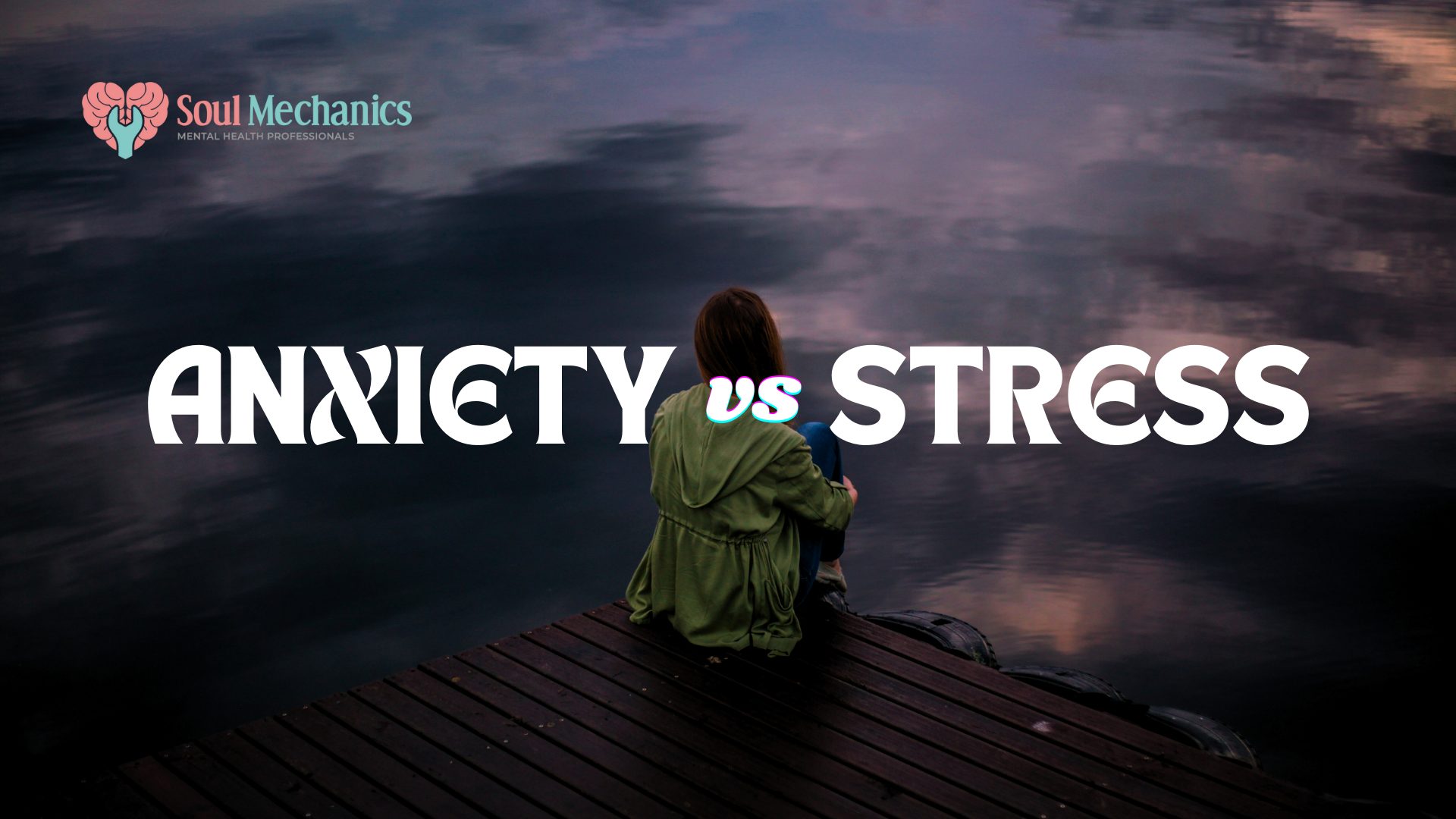Anxiety vs. Stress: How to Manage Both
Anxiety vs. Stress: How to Manage Both
Written By: Rose Mardiah Mazlan (Content Moderator)

Verified By: Shaundtrya Ganasan, Licensed Counselor (KB11097)
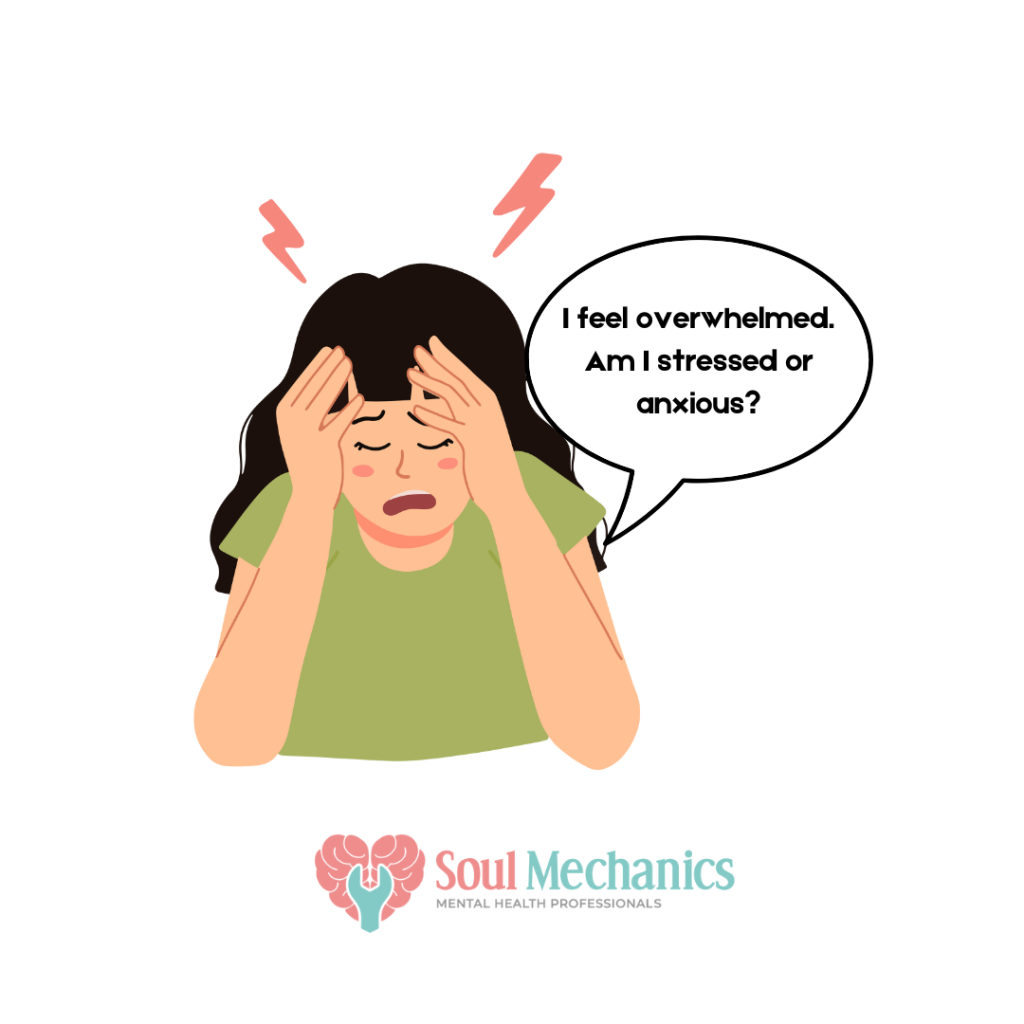
Are you stressed or anxious? How do you identify whether you are experiencing either one or both? These two conditions are normal for everyone and are often used interchangeably, but they are not the same. In everyday life, you experience changes in your emotions, and your physical responses get tense during those moments.
But, the symptoms between these two might be almost similar and get you confused. So, how do you know what you are feeling is stress from a specific situation or anxiety that lingers around your mind?
In this article, you will understand the similarities and differences between stress and anxiety, their signs, and how you can address them effectively.
Overlaps Between Stress and Anxiety
Even though some signs are subtle, stress and anxiety share many symptoms because both activate the body’s “fight-or-flight” response. Your body is expressing discomfort, and that’s where the stress and anxiety try to tell you. Both conditions can result in:
- Increased heart rate.
- Rapid breathing.
- Muscle tension.
- Fatigue or exhaustion.
- Trouble concentrating.
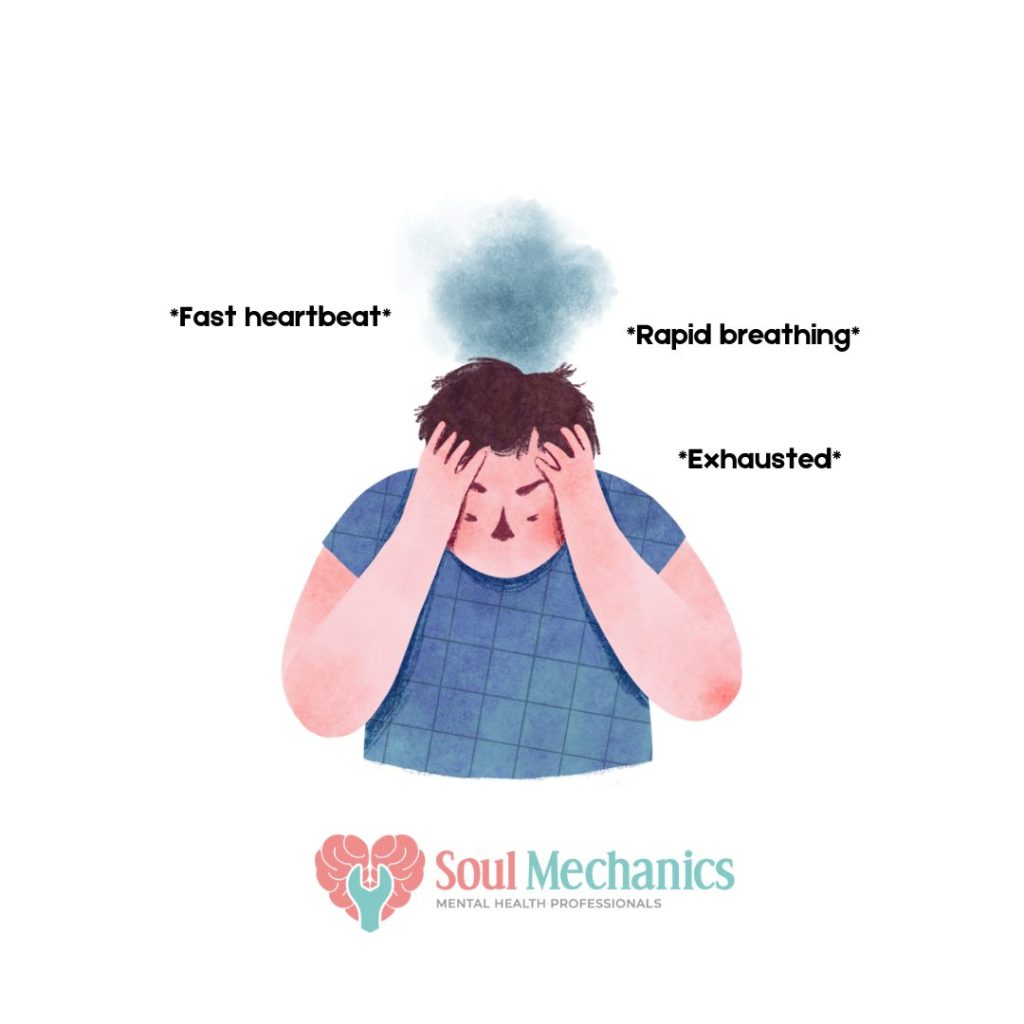
These shared reactions may cause difficulty for you to differentiate between the two, especially since both are responses to perceived challenges. When the conditions are unclear, you might be helpless on how to manage your mental health. For instance, an examination is your challenge. Normally, you might feel your heart race more than usual and your palms sweat before sitting the exam. This is known as the stress. But, if you continue worrying about your performance weeks after the exam, this is a sign of anxiety.
Differences Between Stress and Anxiety
Now that you have noticed how can they be similar, here are several characteristics that can help you differentiate between the two.
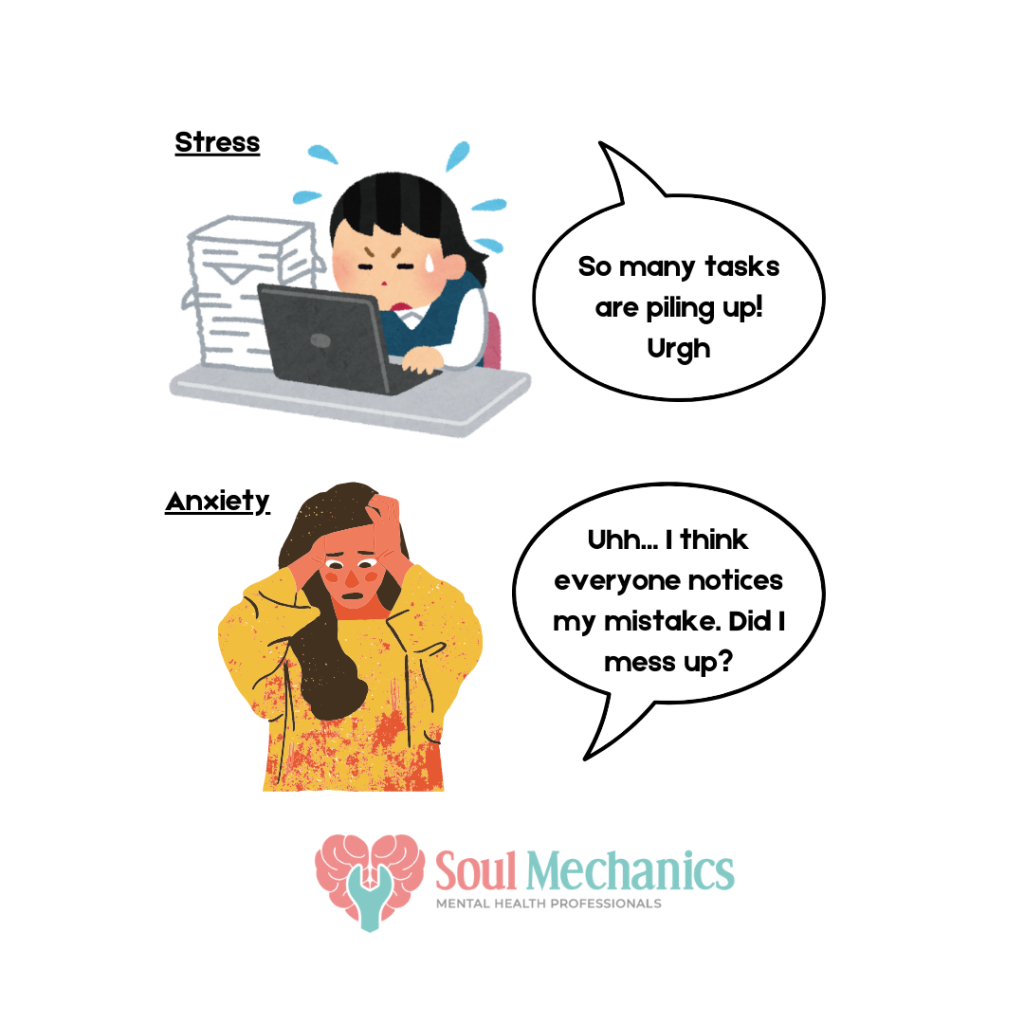
Cause:
Stress: Stress is always triggered by an external event or pressure, such as deadlines, financial issues, or conflicts. These external events are something that is within your control, so the effects are not ever-lasting.
Anxiety: Often doesn’t require a specific trigger and can be persistent, even when no immediate threat is present. For example, you consistently worried about your work performance, despite being able to go through your job successfully previously.
Duration:
Stress: It can resolved once the stressor is gone or addressed. Once you manage to pass the hurdle, your burden will be eased.
Anxiety: Unlike stress, anxiety may linger even after the stressor is removed. So, you will most likely face disproportionate worry about potential future events. It leaves you living on a hanging thread.
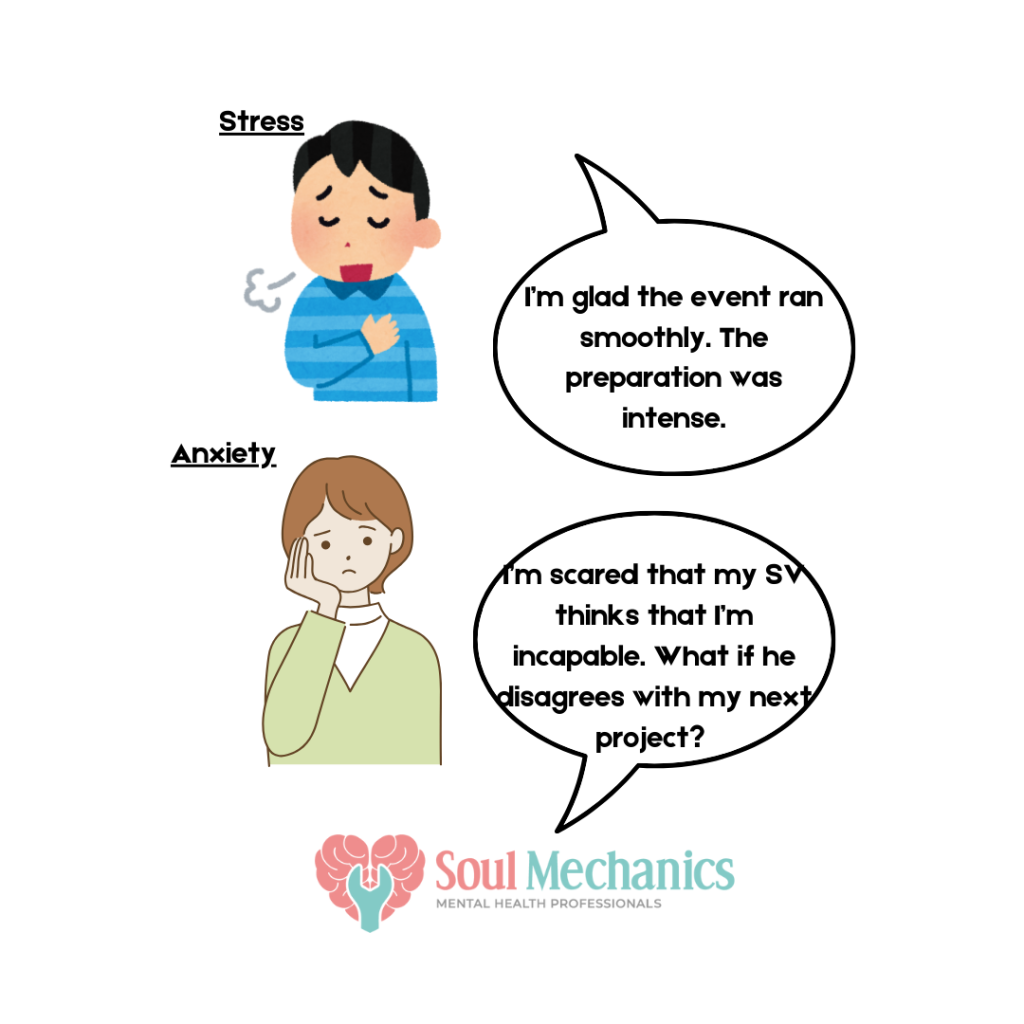
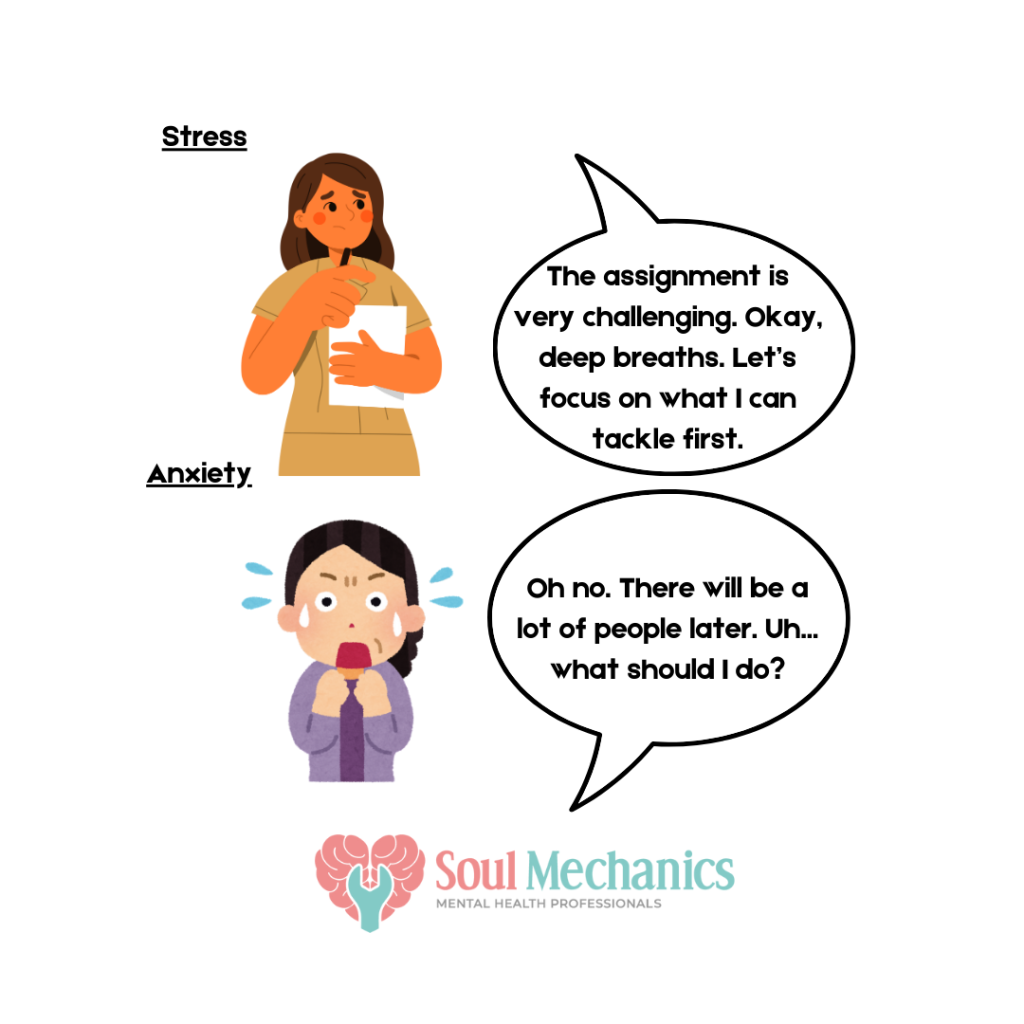
Type of Response:
Stress: While feeling stressed, you tend to focus on the present challenge. You will try your best to overcome your conflict to solve the current problem.
Anxiety: Different from stress, anxiety tends to focus on what could happen in the future, often leading to catastrophic thinking. You tend to think of the bad outcome that has not happened yet, making you feel restless for a long time.
Signs of Stress and Anxiety
Stress and anxiety showed their respective specific signs. These signs can help you identify and understand them better in a way so that you will be more aware of your conditions.
Signs of Stress
Irritability or mood swings:
While doing your daily tasks, identify whether your mood suddenly fluctuates and makes you feel a mix of emotions. You may feel tired at a time, and suddenly feel angry another minute without a clear explanation. Sit down with your feelings and slowly walk through how you are feeling at that time.
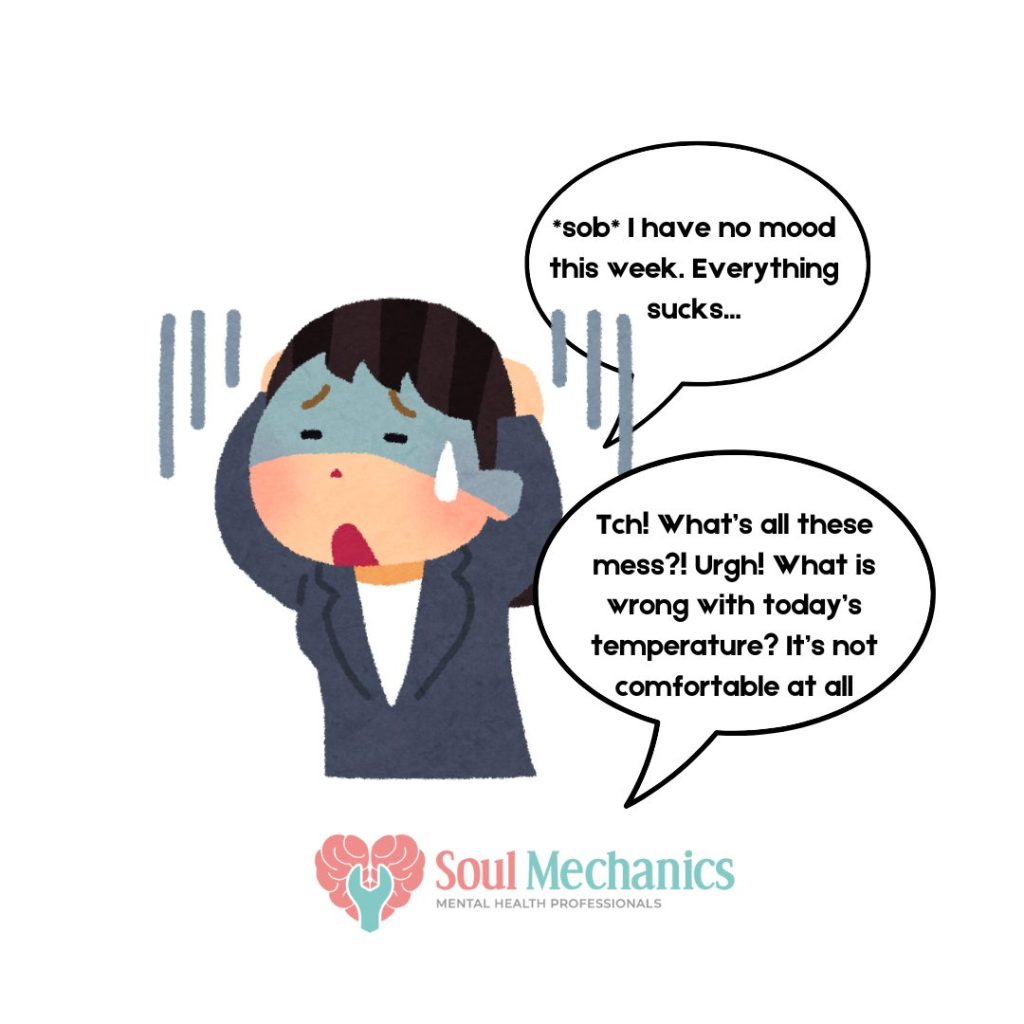
Sleep disturbances: It include difficulty falling asleep or waking up in the middle of the night. Not only does your sleep quality seem to be dropping, but your body cannot rest properly during the night. Take note of how many hours of sleep you managed to get.
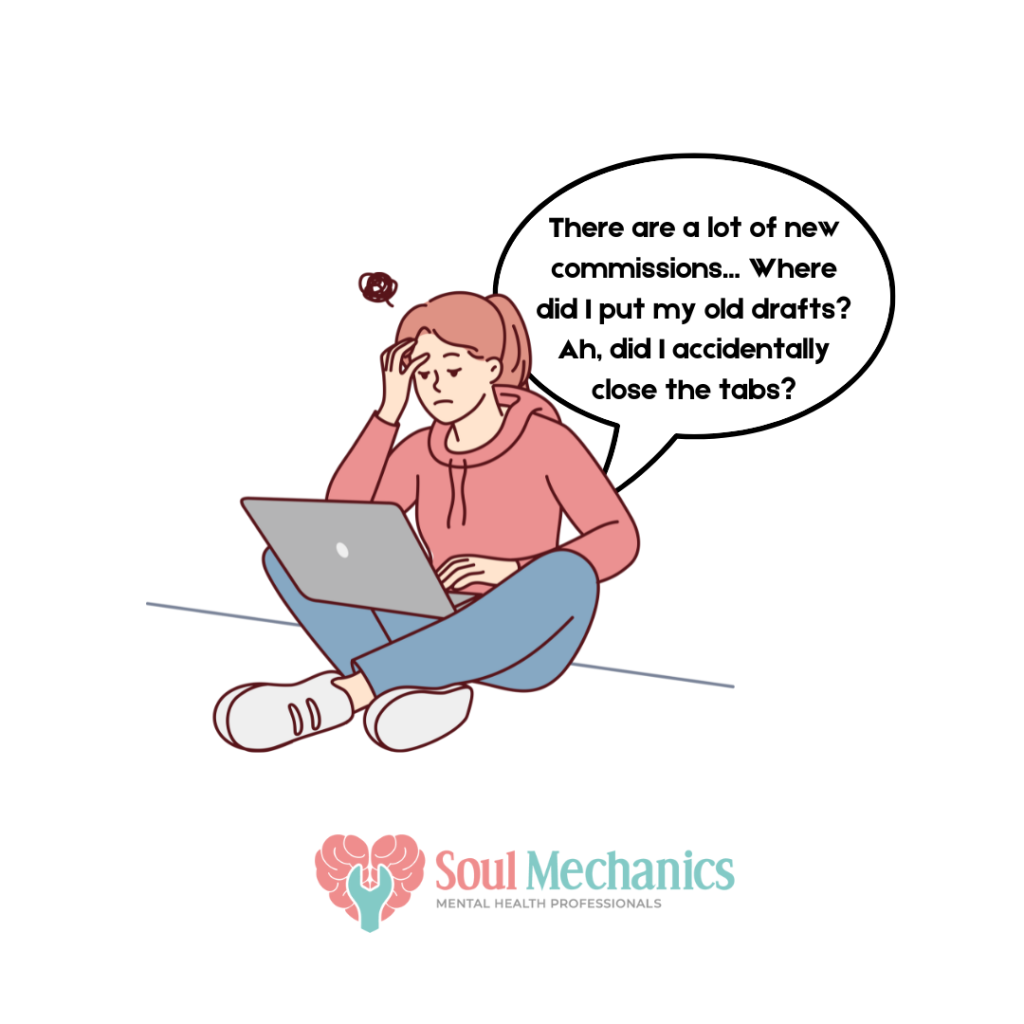
Trouble focusing:
While stressed, you might struggle to focus on your tasks, causing you to feel a handful of your duties. You might be stuck, not knowing how to start your work even though it is something you have done for the past years. This will affect your work performance significantly despite being able to continue carrying out your responsibilities.
Physical symptoms: Sometimes, getting sick is an obvious sign of stress. The constant life challenges will affect your mind, pressuring you from all sides. After all, physical health is directly related to your mental health.
Signs of Anxiety
Persistent worry or fear:
Do you always feel worried or scared about something, and it happens for days? This is one of the prominent characteristics of anxiety– unknown and constant worry. Slowly recognise when you feel that worriness.
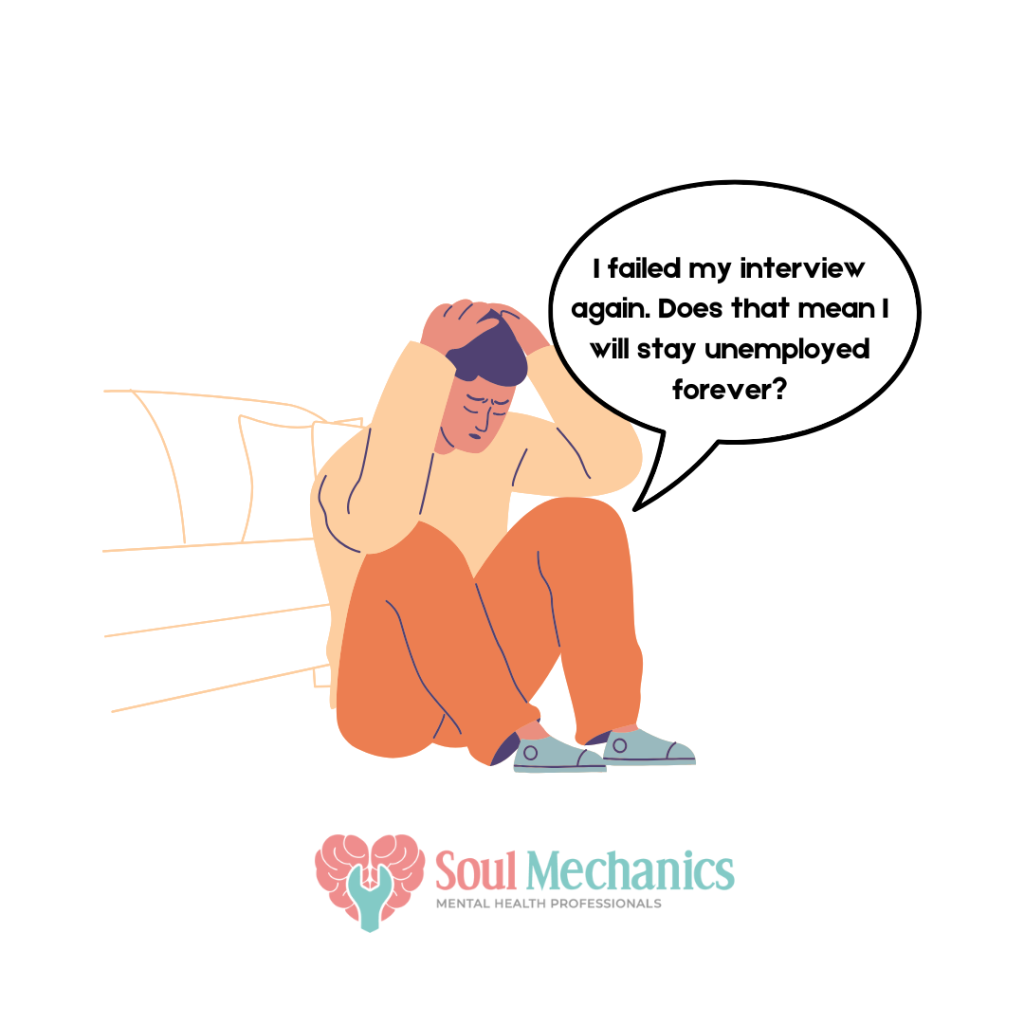
Restlessness:
Anxiety also makes you feel like walking on eggshells. Notice how you feel highly alert when your fear is about to occur. It looks like a red alarm that can go off any second, and your heart is beating fast while anticipating it.
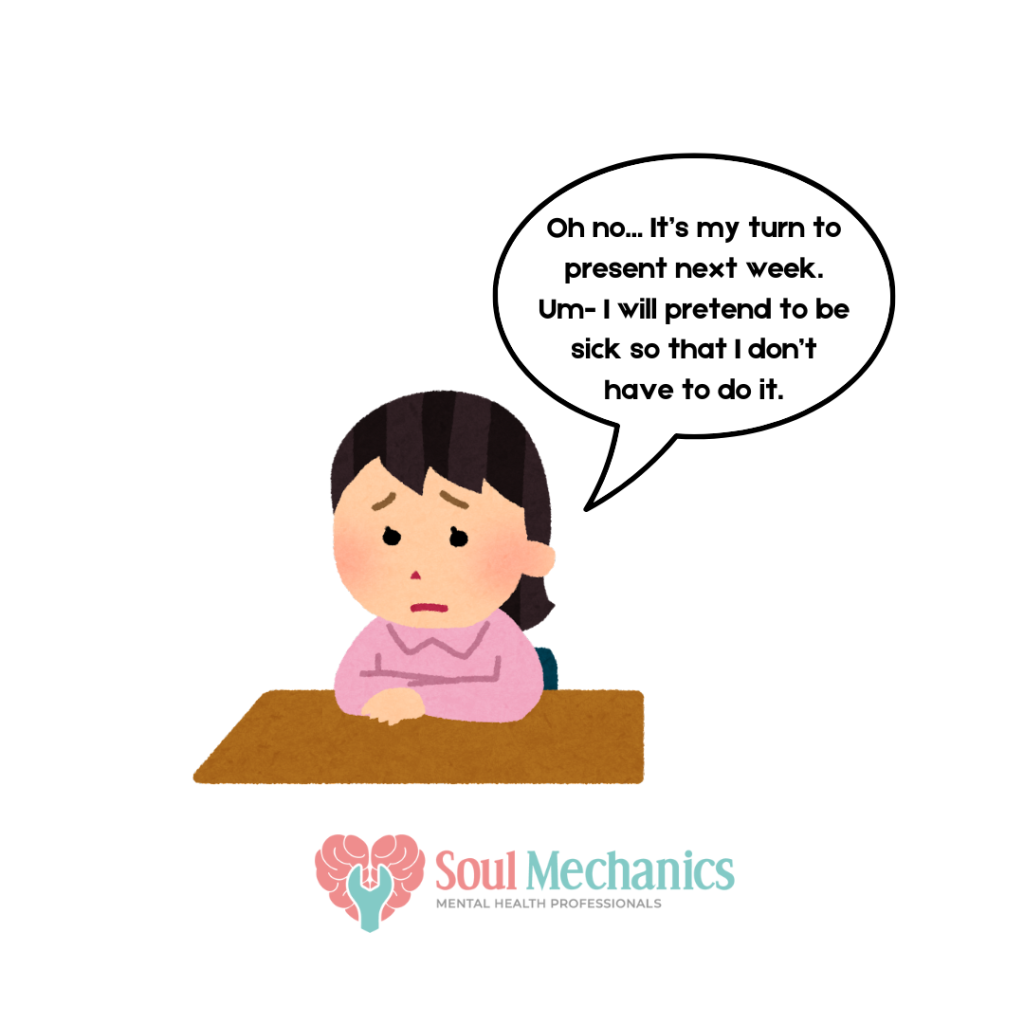
Avoidance:
Have you avoided something as long as you don’t have to do it? Do you rather refuse to do it no matter how many times you have been told to? And do you find yourself to be a relief when you manage to dodge the bullet yet again? This nerve-wracking situation might have caused you to be more alert because you don’t want to be scared. This scary feeling resides in you and pushes you from facing your fear.
Panic attacks:
A panic attack is a brief episode of intense anxiety, which causes the physical sensations of fear. While in this state, you may experience a racing heartbeat, shortness of breath, dizziness, trembling, and muscle tension.
Addressing Stress and Anxiety
Managing Stress:
Identify Stressors: Write down your triggers and assess which ones are within your control.
Time Management: Break tasks into smaller, manageable steps. By breaking them down, you will feel less pressured to take a step forward.
Practice Relaxation Techniques: Use deep breathing, meditation, or progressive muscle relaxation to calm your body. This will calm your body by slowly stabilising your physiology.
Seek Support: You don’t have to carry your burden alone. Share your feelings with trusted friends or family. It would also be great if you could talk it out with a counsellor as they are the experts who can navigate your concerns together.
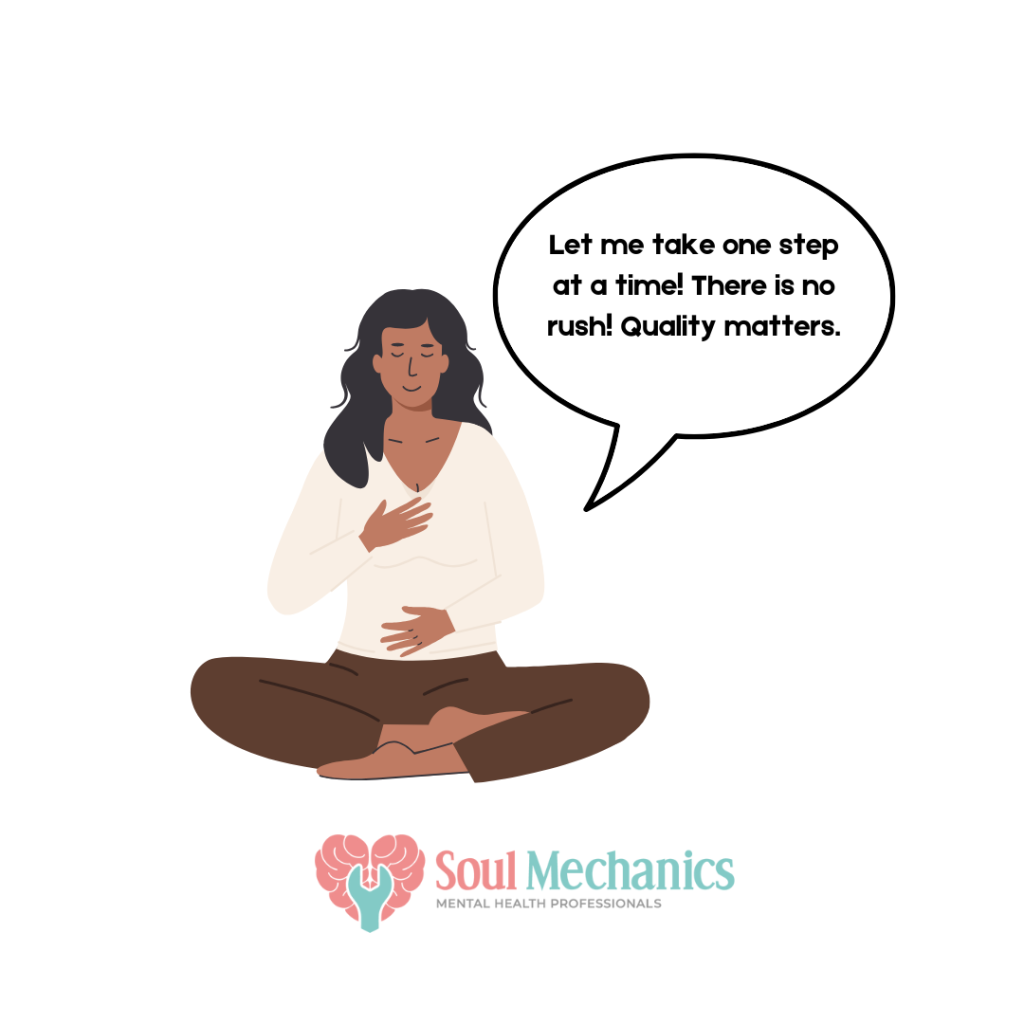
Managing Anxiety:
Challenge Negative Thoughts: Write down the negative thoughts. Try to reframe those irrational worries by asking yourself:
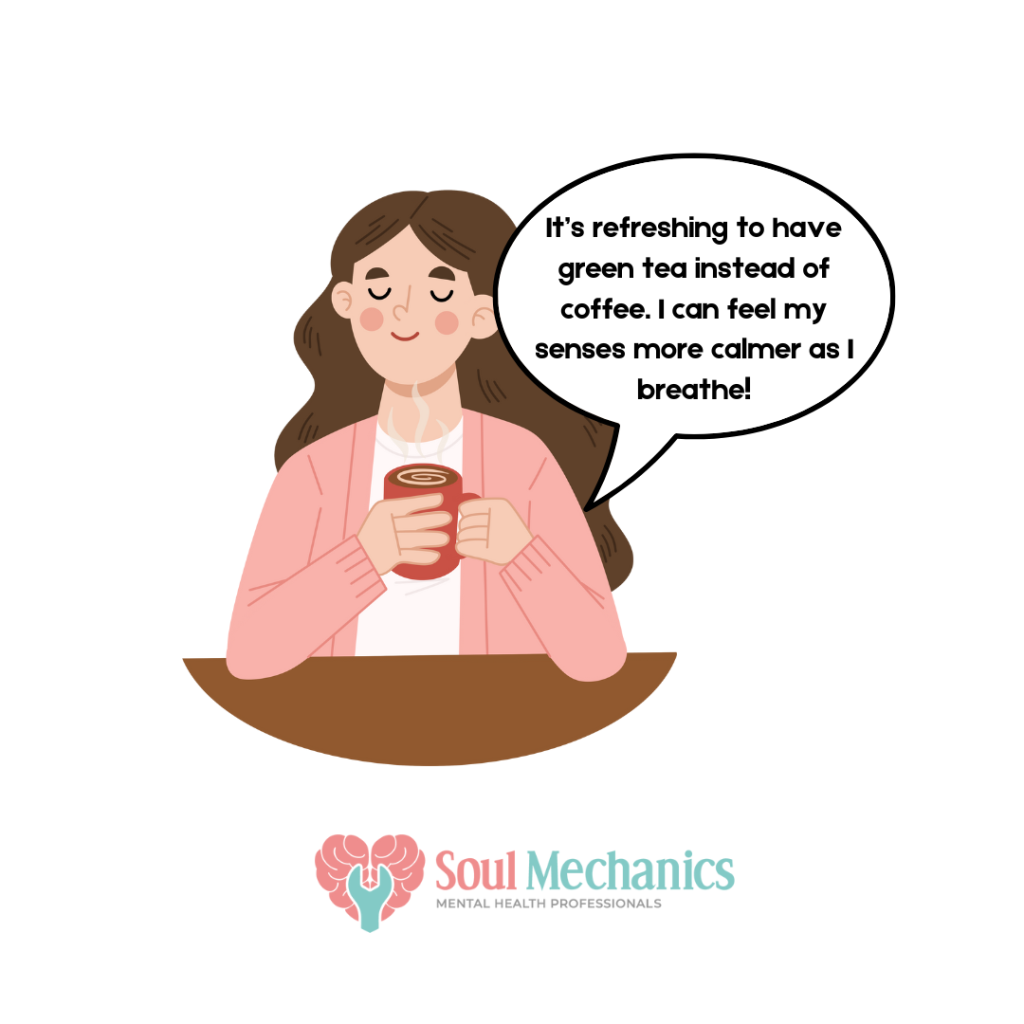
Stay Present: Engage in mindfulness activities to ground yourself in the moment. You can perform meditation, and yoga exercises or embrace the awareness of your surroundings to live in the moment. Journaling is also a great tool to keep your ground.
Limit Stimulants: Reduce caffeine or other substances that can heighten anxiety.
Professional Help: If your anxiety seems to persist longer, you are recommended to seek therapy from mental health professionals. They can assist you in understanding yourself better, modifying more personal coping strategies, and navigating your negative thoughts more safely and healthily.
Conclusion
While stress and anxiety often feel similar, understanding their differences is key to addressing them effectively. Stress is usually a response to immediate challenges, while anxiety tends to persist and revolve around future uncertainties. Both are manageable with the right strategies, whether through relaxation techniques, lifestyle adjustments, or professional help.
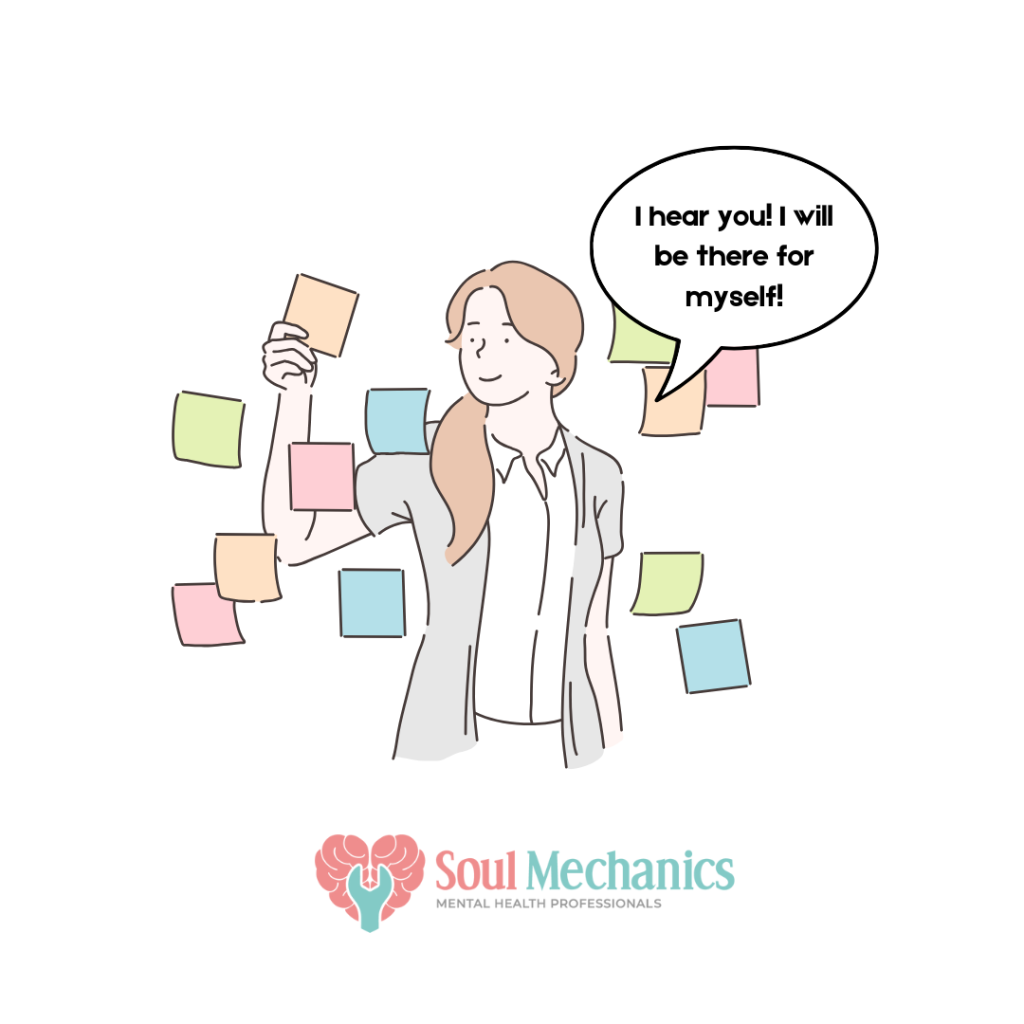
Moreover, stress and anxiety can also come concurrently. So, it is not strange if you feel you have the symptoms of both conditions. By recognizing the signs early and adopting coping mechanisms, you can navigate life’s challenges with greater resilience and clarity.
If you’re looking for a therapist in Kota Damansara or Ipoh area, you can click here for more information.
If you enjoyed reading this, why not broaden the horizon of knowledge by learning about "Why Do I Self-Sabotage My Own Happiness?"? You can read the blog here.
For more content related to mental health do follow us on our official Instagram.

